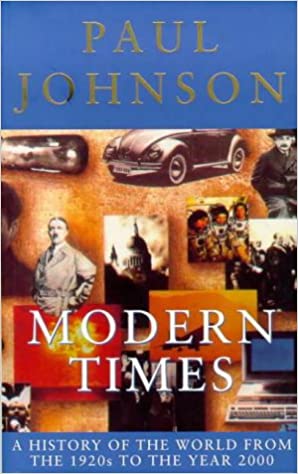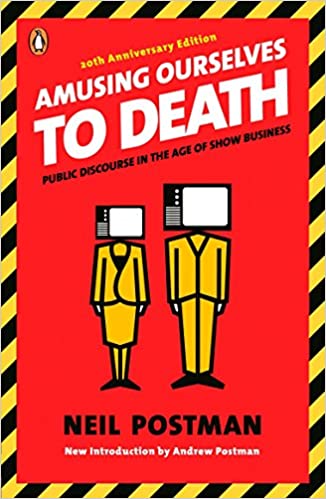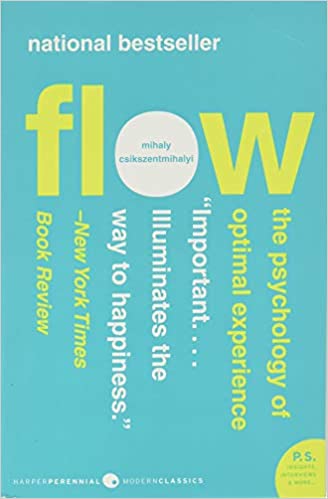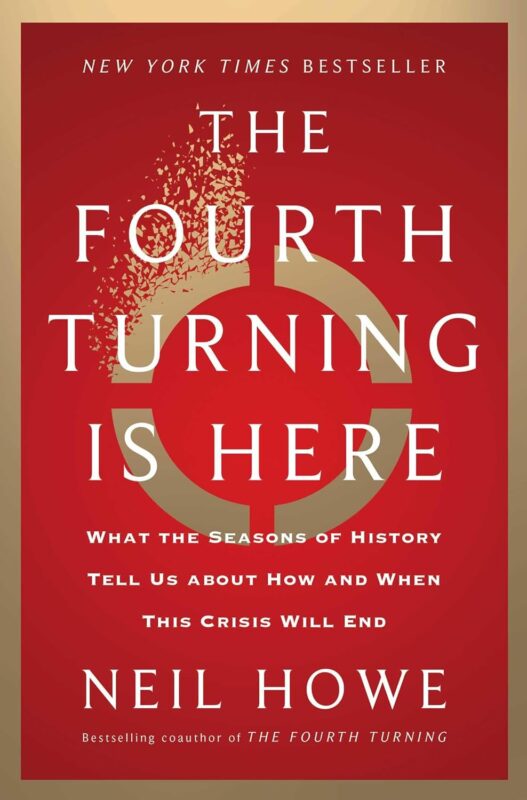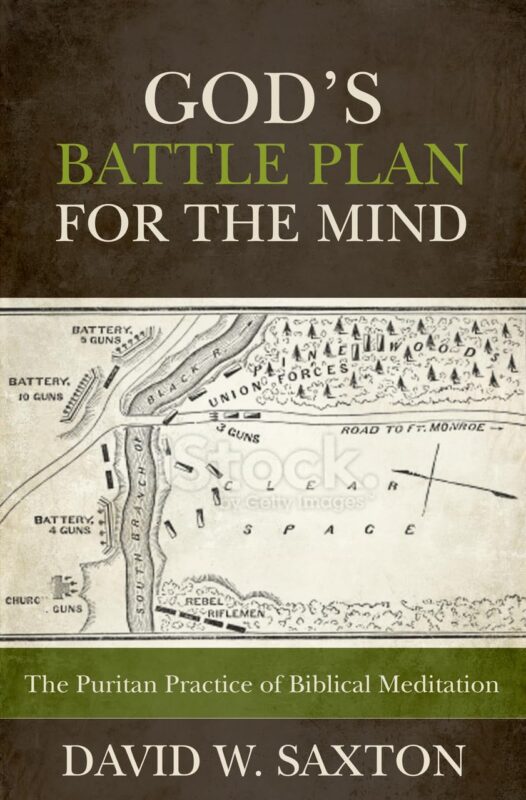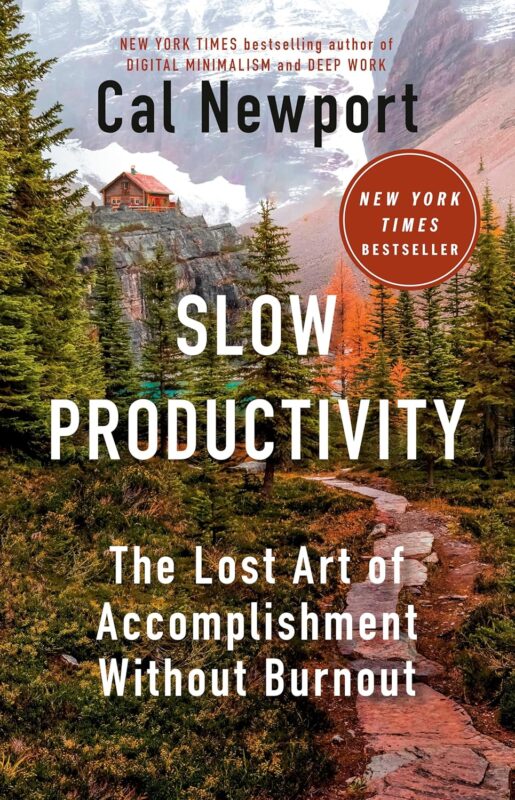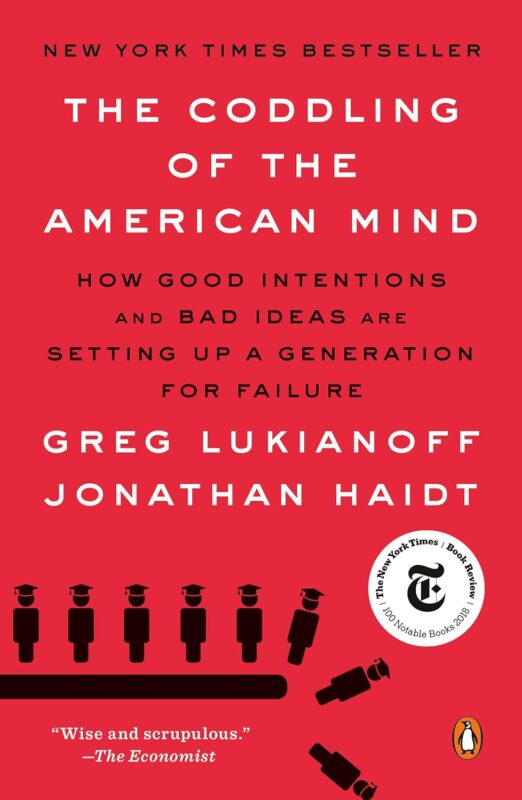Modern Times: A History of the World from the 1920s to the Year 2000
The classic world history of the events, ideas, and personalities of the twentieth century.
More info →Amusing Ourselves to Death: Public Discourse in the Age of Show Business
Originally published in 1985, Neil Postman’s groundbreaking polemic about the corrosive effects of television on our politics and public discourse has been hailed as a twenty-first-century book published in the twentieth century. Now, with television joined by more sophisticated electronic media—from the Internet to cell phones to DVDs—it has taken on even greater significance. Amusing Ourselves to Death is a prophetic look at what happens when politics, journalism, education, and even religion become subject to the demands of entertainment. It is also a blueprint for regaining control of our media, so that they can serve our highest goals.
More info →Charlotte Mason’s Philosophy of Education (Book 6 of the Home Education Series)
This edition of Charlotte Mason’s Home Education Series is presented complete and unabridged, retaining the pagination of the original to make research and referencing easy. All the books have been fully transcribed and formatted using a clean and easy-to-read font so that there’s no excuse not to read these revolutionary works.Written shortly before her death, A Philosophy of Education represents Charlotte Mason’s final thoughts after a lifetime spent thinking on education. Containing the final version of the 20 principles on which her method is based this book is a great place to start for parents of older children.
More info →Flow: The Psychology of Optimal Experience
Legendary psychologist Mihaly Csikszentmihalyi's famous investigations of "optimal experience" have revealed that what makes an experience genuinely satisfying is a state of consciousness called flow. During flow, people typically experience deep enjoyment, creativity, and a total involvement with life. In this new edition of his groundbreaking classic work, Csikszentmihalyi ("the leading researcher into ‘flow states’" —Newsweek) demonstrates the ways this positive state can be controlled, not just left to chance. Flow: The Psychology of Optimal Experience teaches how, by ordering the information that enters our consciousness, we can discover true happiness, unlock our potential, and greatly improve the quality of our lives.
More info →The Fourth Turning Is Here: What the Seasons of History Tell Us about How and When This Crisis Will End
The visionary behind the bestselling phenomenon The Fourth Turning looks once again to America’s past to predict our future in this startling and hopeful prophecy for how our present era of civil unrest will resolve over the next ten years—and what our lives will look like once it has.
Twenty-five years ago, Neil Howe and the late William Strauss dazzled the world with a provocative new theory of American history. Looking back at the last 500 years, they’d uncovered a distinct pattern: modern history moves in cycles, each one lasting roughly eighty to one hundred years, the length of a long human life, with each cycle composed of four eras—or “turnings”—that always arrive in the same order and each last about twenty years. The last of these eras—the fourth turning—was always the most perilous, a period of civic upheaval and national mobilization as traumatic and transformative as the New Deal and World War II, the Civil War, or the American Revolution.
Now, right on schedule, our own fourth turning has arrived. And so Neil Howe has returned with an extraordinary new prediction. What we see all around us—the polarization, the growing threat of civil conflict and global war—will culminate by the early 2030s in a climax that poses great danger and yet also holds great promise, perhaps even bringing on America’s next golden age. Every generation alive today will play a vital role in determining how this crisis is resolved, for good or ill.
Illuminating, sobering, yet ultimately empowering, The Fourth Turning Is Here takes you back into history and deep into the collective personality of each living generation to make sense of our current crisis, explore how all of us will be differently affected by the political, social, and economic challenges we’ll face in the decade to come, and reveal how our country, our communities, and our families can best prepare to meet these challenges head-on.
More info →God’s Battle Plan for the Mind: The Puritan Practice of Biblical Meditation
During the seventeenth century, English Puritan pastors often encouraged their congregations in the spiritual discipline of meditating on God and His Word. Today, however, much of evangelicalism is either ignorant of or turned off to the idea of meditation. In God's Battle Plan for the Mind, pastor David Saxton seeks to convince God's people of the absolute necessity for personal meditation and motivate them to begin this work themselves. But he has not done this alone. Rather, he has labored through numerous Puritan works in order to bring together the best of their insights on meditation. Standing on the shoulders of these giants, Saxton teaches us how to meditate on divine truth and gives valuable guidance about how to rightly pattern our thinking throughout the day. With the rich experiential theology of the Puritans, this book lays out a course for enjoying true meditation on God's Word.
Table of Contents:
1. The Importance of Recovering the Joyful Habit of Biblical Meditation
2. Unbiblical Forms of Meditation
3. Defining Biblical Meditation
4. Occasional Meditation
5. Deliberate Meditation
6. The Practice of Meditation
7. Important Occasions for Meditation
8. Choosing Subjects for Meditation
9. The Reasons for Meditation
10. The Benefits of Meditation
11. The Enemies of Meditation
12. Getting Started: Beginning the Habit of Meditation
Conclusion: Thoughts on Meditation and Personal Godliness
Slow Productivity: The Lost Art of Accomplishment Without Burnout
Our current definition of “productivity” is broken. It pushes us to treat busyness as a proxy for useful effort, leading to impossibly lengthy task lists and ceaseless meetings. We’re overwhelmed by all we have to do and on the edge of burnout, left to decide between giving into soul-sapping hustle culture or rejecting ambition altogether. But are these really our only choices?
Long before the arrival of pinging inboxes and clogged schedules, history’s most creative and impactful philosophers, scientists, artists, and writers mastered the art of producing valuable work with staying power. In this timely and provocative book, Cal Newport harnesses the wisdom of these traditional knowledge workers to radically transform our modern jobs. Drawing from deep research on the habits and mindsets of a varied cast of storied thinkers – from Galileo and Isaac Newton, to Jane Austen and Georgia O’Keefe – Newport lays out the key principles of “slow productivity,” a more sustainable alternative to the aimless overwhelm that defines our current moment. Combining cultural criticism with systematic pragmatism, Newport deconstructs the absurdities inherent in standard notions of productivity, and then provides step-by-step advice for cultivating a slower, more humane alternative.
From the aggressive rethinking of workload management, to introducing seasonal variation, to shifting your performance toward long-term quality, Slow Productivity provides a roadmap for escaping overload and arriving instead at a more timeless approach to pursuing meaningful accomplishment. The world of work is due for a new revolution. Slow productivity is exactly what we need.
More info →Good Fat is Good for Women: Menopause
Menopause. Why do we go through it? How can we enjoy this time of life? There is a plethora of confusing and misleading information out there about menopause: what to take, what to eat. Women may begin to wonder: is there something wrong with our bodies? And if menopause is natural, why do doctors, pharmaceutical companies, and the media recommend so much medication to treat menopausal symptoms? The last sixty years of dietary advice, warning women to avoid fat, have actually worsened women’s health. If you’re approaching menopause, in menopause, or are interested in improving your health naturally, here is a book that explains the history of menopause, the evolutionary benefits of this life event, and how to eat the right foods to help you enjoy what should be the longest and most fulfilling part of your life. This book is the first of a three-book series that shows how important eating good fat is for a woman’s health at every stage of her life.
More info →The Coddling of the American Mind: How Good Intentions and Bad Ideas Are Setting Up a Generation for Failure
Something has been going wrong on many college campuses in the last few years. Speakers are shouted down. Students and professors say they are walking on eggshells and are afraid to speak honestly. Rates of anxiety, depression, and suicide are rising—on campus as well as nationally. How did this happen?
First Amendment expert Greg Lukianoff and social psychologist Jonathan Haidt, author of The Anxious Generation, show how the new problems on campus have their origins in three terrible ideas that have become increasingly woven into American childhood and education: What doesn’t kill you makes you weaker; always trust your feelings; and life is a battle between good people and evil people. These three Great Untruths contradict basic psychological principles about well-being and ancient wisdom from many cultures. Embracing these untruths—and the resulting culture of safetyism—interferes with young people’s social, emotional, and intellectual development. It makes it harder for them to become autonomous adults who are able to navigate the bumpy road of life.
Lukianoff and Haidt investigate the many social trends that have intersected to promote the spread of these untruths. They explore changes in childhood such as the rise of fearful parenting, the decline of unsupervised, child-directed play, and the new world of social media that has engulfed teenagers in the last decade. They examine changes on campus, including the corporatization of universities and the emergence of new ideas about identity and justice. They situate the conflicts on campus within the context of America’s rapidly rising political polarization and dysfunction.
This is a book for anyone who is confused by what is happening on college campuses today, or has children, or is concerned about the growing inability of Americans to live, work, and cooperate across party lines.
More info →
